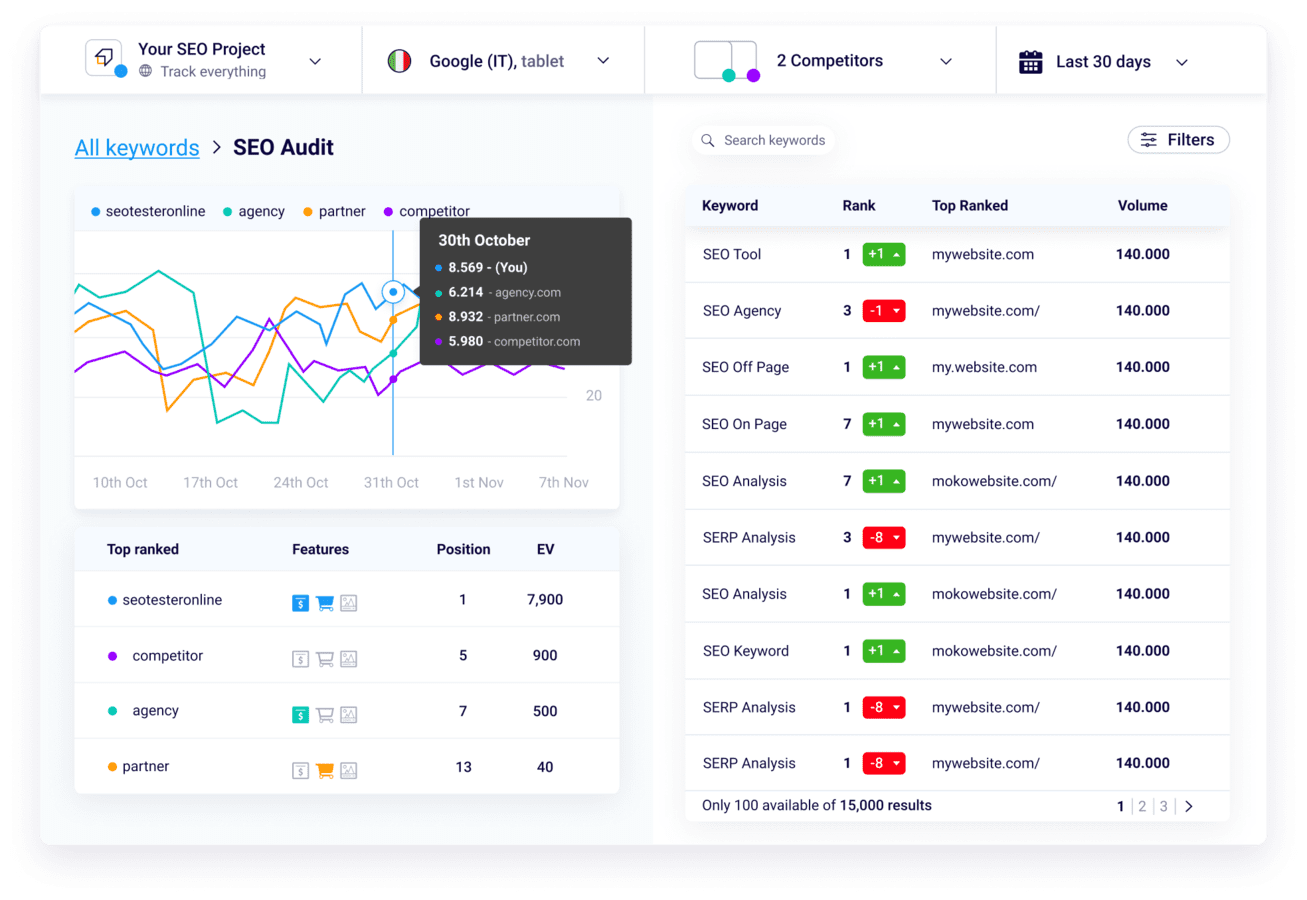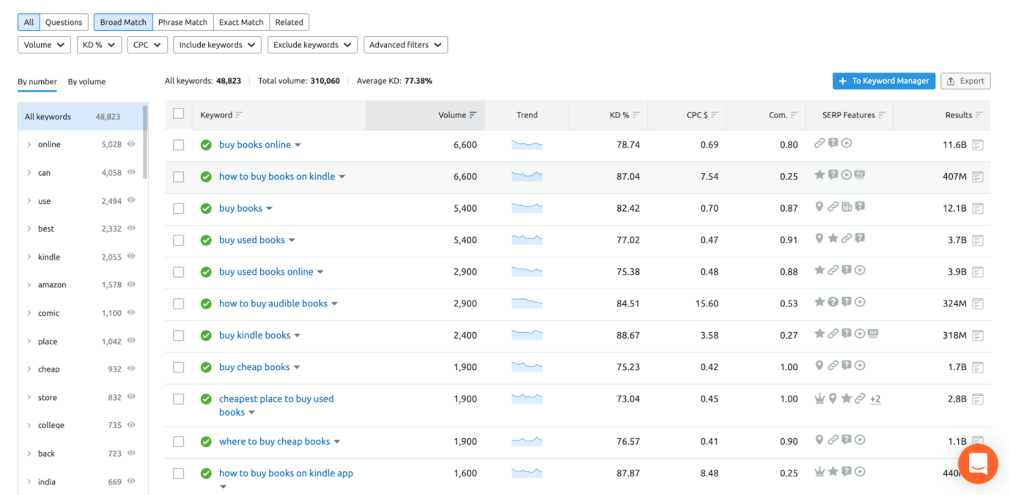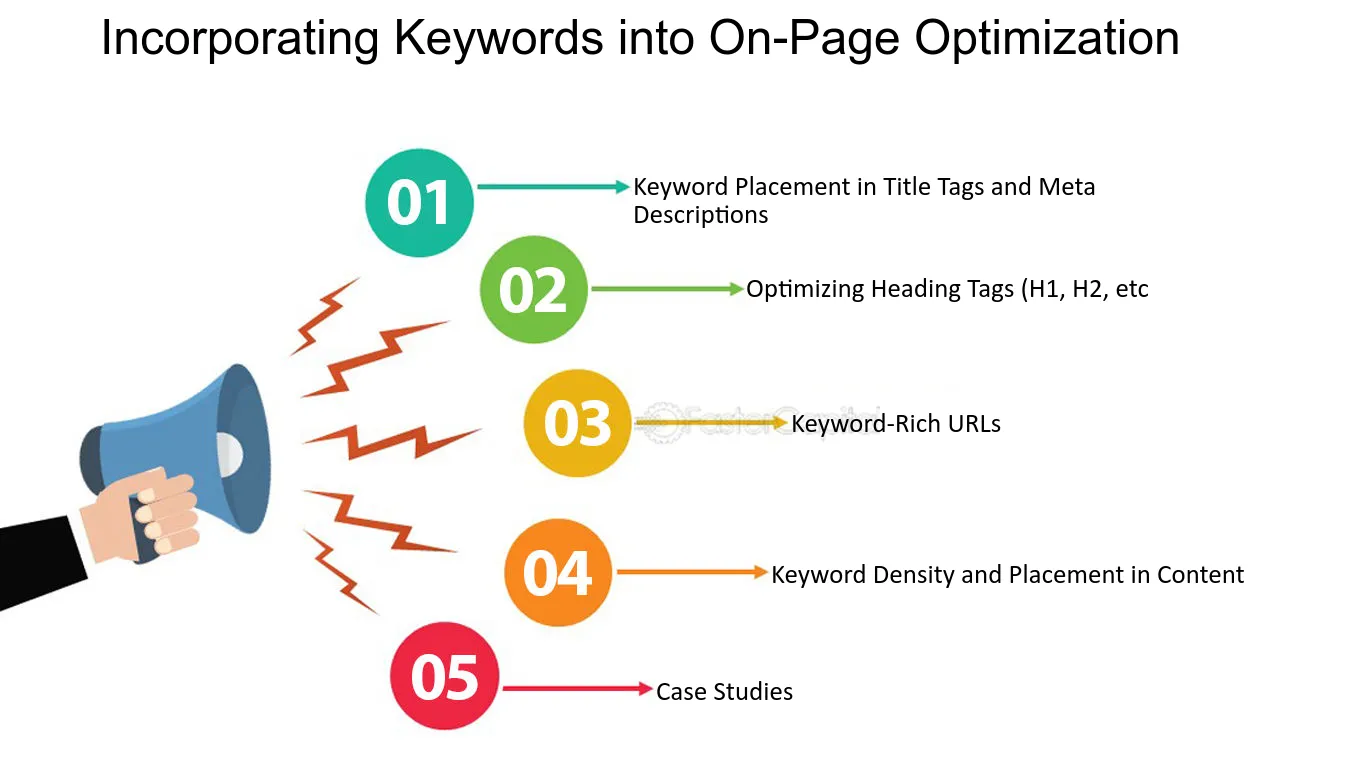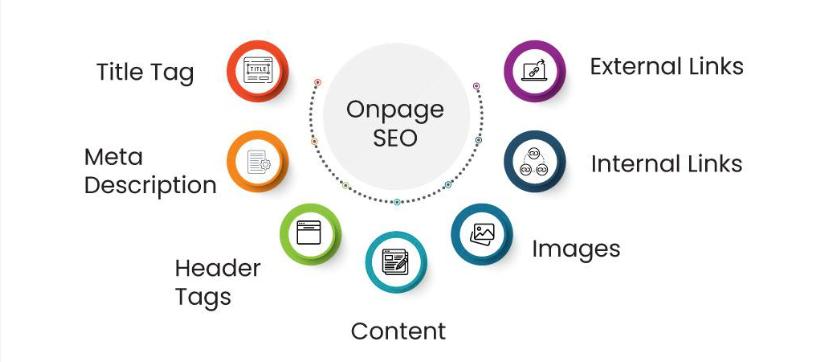Keyword Position
The Keyword Position tool allows you to track the ranking of your website for specific keywords in search engine results pages (SERPs). This tool is perfect for SEO professionals, marketers, and website owners who need to monitor their keyword performance and optimize their strategies. The process is straightforward, providing accurate and up-to-date information on your keyword positions.
Share on Social Media:
Boost Your SEO Strategy with the Ultimate Keyword Position Checker PagesTools.com
Eager to improve your website’s search engine ranking? Understanding your keyword position is the first step. This article eliminates guesswork, offering clear methods to track your rankings and impactful SEO strategies. Learn to navigate keyword positions to sharpen your SEO efforts and climb closer to search result top spots—without overwhelming you with industry jargon.
Key Takeaways
Keyword position is vital for SEO success, determining a website’s visibility in search engine rankings, with real-time tracking essential due to fluctuations caused by various factors like content updates and search engine algorithm changes.
Keyword position tracking tools, both free and paid, automate the monitoring process and provide valuable insights into SEO metrics like visibility, average position, and SERP features, enabling informed decision-making for SEO strategies.
Rank checkers can inform content optimization and technical SEO adjustments to improve rankings, while monitoring regional keyword positions helps tailor strategies to local audiences, enhancing global SEO efficacy.
Understanding Keyword Position and Its Impact on SEO

Imagine launching a new product or service into the market. The success of this venture heavily depends on where it stands amid the competition. Similarly, in the digital landscape, the ‘position’ of your website for specific keywords in search engine rankings plays a pivotal role in your online visibility and success. Keyword position provides a snapshot of a website’s performance in search engine rankings, allowing for a quick assessment of SEO success.
Competing websites strive to prove their relevance to search engines for specific keywords. This tug-of-war for prominence in search engine results pages (SERPs) is a constant battle, making tracking keyword positions a significant part of the SEO strategy.
Defining Keyword Position
So, what exactly is a keyword position? Keyword position, also known as keyword ranking, refers to the rank or order a website or webpage appears in the search engine results for a specific keyword. In simpler terms, it’s where your website lands in the search results when someone types in a keyword related to your business or content.
A higher keyword position corresponds to a listing closer to the top of the search results, which is where every website aims to be. After all, being listed on the first page of search results significantly increases the likelihood of user engagement, as subsequent pages receive considerably less traffic.
The Role of Keyword Position in SEO
Keyword position isn’t just a number; it’s the heartbeat of your SEO efforts. The first page of Google search results (positions 1 to 10) provides the highest visibility for those keywords. Any position beyond the 100th ranking means that a website does not appear within the first ten pages of Google search results, significantly diminishing visibility.
On top of that, search engines like Google are constantly tweaking their algorithms, causing shifts in keyword positions. These shifts can provide valuable insights for businesses, helping them to fine-tune their SEO strategies for optimal performance.
How Keyword Positions Shift Over Time
Keyword positions are not static; they shift over time. Several factors can cause these shifts, including:
Content updates
Google penalties
Local factors
Seasonal trends
Regularly updated web content is favored by search engines, leading to potential improvements in Google rankings due to perceived relevance and currency. Google penalties or major algorithm updates can significantly alter rankings, making daily tracking of keyword positions crucial for recovery.
On top of that, local factors, such as competition, language, and cultural elements, along with personalized search results, can cause differences in website rankings across various locations. Not forgetting, seasonal trends and changing user intent can cause keyword rankings to fluctuate. Understanding these shifts can provide actionable insights for your SEO strategy.
The Mechanics Behind Tracking Keyword Positions

Now that we understand the importance of keyword positions let’s explore the mechanics behind tracking them. Keyword rank trackers simplify this process by doing the heavy lifting for you. They automatically check a site’s positions in the SERPs for target keywords. Here’s how they work:
Set up a project
Specify the website
Choose search engines and locations
Add keywords
Configure competitor analysis
Using a keyword rank tracker, such as a keyword position tool, makes it easy to track keyword rankings and stay on top of your SEO efforts.
These tools provide SEO metrics such as:
visibility
average position
traffic
SERP features
for each keyword, with the data being updated at regular intervals and allowing review of ranking changes over time.
How Do Keyword Rank Checkers Work?
Keyword rank checkers are like your personal SEO assistants. They automate the position tracking of keywords across different search engines using bots that crawl search results and keep search databases updated. When you enter a URL into a keyword rank checker, it scans its index for all ranking keywords related to that URL and provides a detailed report, including the positions of the website for given keywords.
You can set these tools to deliver periodic reports on keyword positions, adaptable to the frequency you desire, such as weekly or monthly reports. By automating the rank tracking process, keyword rank checkers provide consistent monitoring while saving significant time for the user.
Interpreting Data from Keyword Position Tools

Interpreting the data from keyword position tools is like reading the story of your website’s performance. These tools provide crucial SEO metrics such as:
Monthly search volume
Competition level for keywords
Visibility Share, which quantifies the presence of a domain on the SERP, including both organic listings and SERP features
Google Search Console’s ‘Average position’ metric, which approximates the rankings of a domain for specific search terms.
Long-tail keywords need to be monitored to gauge their performance and adapt content strategy accordingly. By analyzing SERP features triggered by a keyword, you can also identify corresponding URLs and view keyword ranking changes over a chosen timeframe.
The Importance of Accurate Keyword Position Data
Accurate keyword position data is the backbone of effective SEO strategy. Real-time monitoring and early detection of SERP ranking fluctuations allow for swift and effective responses to optimize SEO strategies. Free tools like PagesTools.com offer multitargeting features for visibility tracking across various devices and locations, enhancing accuracy in SEO decisions.
Also, understanding a domain’s presence in different SERP features is vital for comprehending Google’s site evaluation and informing SEO strategies.
The Benefits of Using a Free Keyword Rank Checker
While there are many paid keyword rank checkers in the market, free tools also offer significant benefits. They provide insights on keyword rankings across various locations, enhancing global SEO strategies. Plus, they offer a cost-effective way to perform SEO analysis, making them an excellent option for businesses with tight budgets or those just starting with SEO.
Cost-Effective SEO Analysis with Free Tools
Free keyword rank checker tools, such as the free keyword position checker offered by Keyword.com, provide valuable insights without the need to invest in marketing costs. These tools help monitor your keyword positions without cost, offering real-time results and allowing filtering by location for targeted analysis.
As such, they are integral for SEO strategies that seek to optimize performance while remaining cost-efficient.
Quick Insights for Agile SEO Adjustments
Free keyword rank checkers offer several benefits:
They save money and time.
They enable businesses to monitor their own rankings as well as those of their competitors.
They provide insights into competing SEO strategies.
They allow for rapid identification of ranking fluctuations.
They can alert businesses to changes in real-time, enabling a nimble SEO response.
By equipping businesses with the agility to make immediate adjustments to their SEO strategies based on accurate and up-to-date ranking information, these tools are a game-changer.
Comparing Free and Premium Position Tracking Tools
While free tools offer numerous benefits, it’s essential to understand how they stack against premium services. Key aspects of user experience, such as Ease of Use, Quality of Support, and Ease of Setup, are rated in SE Ranking user ratings.
Despite its benefits, Google Search Console is limited in tracking; it can track only certain keywords listed on the platform and doesn’t allow custom keyword tracking setups. It’s crucial to weigh the pros and cons of free and premium tools to choose the one that best fits your business needs.
Optimizing Content with Keyword Position Insights

Keyword position insights can be a goldmine for content optimization. Reviewing keyword position data allows webmasters to identify which keywords are underperforming and require more focused optimization efforts. When evaluating keyword positions, understanding the competition for those terms is essential to developing a targeted content strategy.
Assisting historical keyword position performance helps determine the effectiveness of past SEO strategies and guides future content optimization. It can also help optimize web pages by adjusting the content to prioritize keywords with the potential to climb the rankings and attract more organic traffic.
Enhancing Content Based on Keyword Performance
Quality content that is authentic and authoritative can enhance search engine rankings and lead to increased site traffic and improved site authority. Improving on-page SEO with compelling meta descriptions and keyword-rich alt-text, as well as incorporating keywords that reflect search intent, contributes to optimized content.
Rank checkers assist in discovering new keywords, including secondary and tertiary keywords, and valuable long-tail keywords, which can guide content marketing and SEO strategies. Keyword research and analysis of keyword rankings can influence the creation of more content around specific topics that show promise for driving traffic.
Aligning Content with Search Intent
Understanding search intent is crucial for SEO and involves recognizing the four main types: informational, navigational, transactional, and commercial intent. Content should be structured to address user pain points from the outset, meeting the expectations set by the search intent in terms of content type, structure, style, and value.
To rank well for specific keywords, it’s essential that content aligns with the search intent behind those keywords, as search engines prioritize matching user intent with relevant search results.
Addressing Keyword Cannibalization
Keyword cannibalization occurs when multiple pages of a website compete for the same keywords, leading to confusion for search engines when determining which page to rank for a query. Keyword cannibalization can be identified by monitoring keyword rankings and noticing multiple pages ranking for the same keyword not long enough to stabilize their positions. This internal competition dilutes the effectiveness of a website’s SEO efforts, as it can lower the rank of each competing page and potentially reduce overall traffic and conversions.
To address cannibalization, re-evaluate the content strategy to ensure that each page targets a unique set of keywords, merge competing pages, or use 301 redirects to consolidate ranking signals.
Strategies for Improving Your Site's Rankings

Improving your site’s rankings is a constant endeavor, but with the right strategies, it’s definitely achievable. Rank checkers contribute to evaluating a website’s SEO strength by highlighting all traffic-driving keywords. The use of rank checkers is vital to verifying the effectiveness of an SEO strategy by showing ranking progress.
If a sudden drop in keyword rankings is experienced, it’s crucial to audit the site to highlight any issues like backlink issues, technical issues, or on-page and off-page problems.
On-Page Optimization Techniques
On-page SEO refers to optimizing individual web pages to rank higher and earn more relevant traffic in search engines. Some key strategies for on-page SEO include:
Strategically placing targeted keyword phrases within page elements such as the URL, title, and headings
Optimizing title and description meta tags with keywords, including city names for local searches
Using relevant and descriptive alt tags for images
Creating unique and engaging content that incorporates keywords naturally
Ensuring fast page load times and mobile-friendly design
By implementing these strategies, you can significantly enhance your website’s search engine rankings and improve visibility and relevance in search engine results.
Utilizing long-tail keywords within content offers several benefits:
It caters to specific niches
It yields better conversion rates due to less competition and more targeted traffic
It helps prevent keyword cannibalization
It allows you to create unique web pages for different targeted keyword phrases
It helps optimize content to match the search intent, enhancing the chances of winning Featured Snippets.
Building a Strong Backlink Profile
Backlinks are like votes of confidence from other websites. A site’s backlink profile significantly impacts its authority and rankings in Google search results. Regular audits of the backlink profile are necessary to maintain site authority and avoid rankings penalty from spammy links.
Generating high-quality backlinks from relevant and authoritative websites can significantly boost a site’s ranking. Some effective methods for building a strong backlink profile include:
Using the ‘Skyscraper’ technique
Contributing to resource pages
Blogger outreach through services like HARO
Converting brand mentions to backlinks
Implementing these tactics can help improve your site’s visibility and increase its chances of ranking higher in search engine results.
Technical SEO Adjustments
Technical SEO refers to improving the technical aspects of a website to increase its visibility in search engines. Some key areas to focus on for technical SEO include:
Site structure
Load speed
Mobile responsiveness
URL structure
XML sitemaps
Robots.txt file
Canonical tags
Schema markup
Focusing on these technical elements is essential for helping search engines effectively interpret and rank content. With search engines shifting to mobile-first indexing, it’s crucial to optimize websites for mobile devices.
Ensuring a website is mobile-responsive is a recommended technical SEO adjustment that can positively impact a site’s visibility and search performance. Also, improving page load speed is a technical adjustment that can significantly influence a website’s SEO performance and keyword positions.
Navigating the Challenges of Position Tracking Across Multiple Locations
As businesses operate on a global scale, tracking keyword positions across multiple locations becomes crucial. The search results that an average Google user sees can be directly impacted by factors such as:
location
time
language
device type
These variables can influence the relevance and ranking of search results for each user. For websites with an international audience, tracking keyword rankings in each region is important to effectively target appropriate keywords and optimize content for each unique audience.
By monitoring keyword rankings regionally, insights can be gained into the level of competition and the potential for success within target markets. Tracking keyword rankings enables businesses to stay informed about SERP changes across multiple locations and to discover and capitalize on SERP opportunities.
The Effect of Location on Keyword Rankings
Location plays a significant role in keyword rankings. Search rankings can be influenced by proximity to the user, with local businesses potentially ranking higher due to their closeness to the searcher. Monitoring keyword rankings for local SEO is essential to optimize the online presence for attracting local customers.
In PagesTools.com, after setting a primary location for a Position Tracking campaign, additional locations or device types can be added individually to determine search visibility using a position tracking tool.
Tailoring SEO Strategies for Localized Search Terms
Localizing SEO strategies is crucial for capturing geographically relevant traffic. Some key steps to consider for localizing your SEO strategy include:
Using localized keywords to capture search traffic with geographical relevance.
Conducting thorough research into local search behavior, using SEO tools that provide insights into search queries specific to different locations.
Understanding how people in various areas find information related to your business or industry.
By implementing these strategies, you can increase foot traffic and conversions for your business in specific locations.
Website optimization for local search involves:
Including location-specific metadata, such as the city or neighborhood name, in titles, descriptions, and headers
Embedding Google Maps with local business information
Including geo-specific keywords within the content in a natural and contextually relevant manner
Customizing content for local markets by including local language idioms, addressing local issues and news, or featuring local events and cultural nuances
These strategies will help enhance local search visibility.
Utilizing Multi-Location Rank Trackers
Multi-location rank trackers offer a comprehensive view of how keyword positions differ across regions and devices. Tools like Keyword.com provide instantaneous Google search simulations, offering insight into keyword positions across regions and devices. Premium rank tracking services offer advanced capabilities such as simultaneous tracking of multiple keywords across various locations and alert notifications for ranking changes.
Sophisticated reporting features, such as roll-up reports and reputation management dashboards, help businesses monitor their keyword positions at a hyperlocal level on a global scale. Rank tracking tools can also track SERP features, enabling businesses to observe how their targeted keywords gain or lose these valuable positions over time.
Leveraging SERP Features to Boost Visibility
Search Engine Results Pages (SERPs) aren’t just about ten blue links anymore. With SERP features like:
featured snippets
knowledge panels
image packs
top stories
There are numerous ways to enhance a website’s visibility in search results. By using SE Ranking’s Rank Tracker, you can identify keywords that trigger SERP features and review which of your managed keywords trigger desirable SERP features.
Regular tracking of SERP features, such as featured snippets, is crucial for maintaining and improving a website’s competitive edge and visibility in search results.
Identifying Opportunities for SERP Feature Inclusion
To maximize your visibility on search results, it’s essential to identify opportunities for SERP feature inclusion. Utilize an SEO platform’s SERP Feature capability to review which of your managed keywords trigger desirable SERP features.
By assessing the frequency of specific SERP features, such as images or videos, that appear for your target keywords, content can be optimized to align with these features.
Tactics for Earning Featured Snippets
Featured snippets are highly coveted SERP features that can significantly enhance your online visibility. Pages that rank well are more likely to feature in snippets; thus, content formatting such as the inclusion of tables, lists, and headings can enhance their potential. Adopting content formats like lists, tables, and clear subheadings helps cater to featured snippet requirements.
A page that addresses multiple questions related to one topic may secure featured snippets for a range of similar queries. Content answers that are straightforward and concise, especially when aligned with relevant headings, aid Google in snippet selection.
Tracking Presence in SERP Features
Tracking a website’s presence in SERP features is crucial for understanding the full scope of keyword ranking positions and its impact on SEO. SERP features include:
Rich snippets
Local packs
Knowledge panels
Featured snippets
All of these play a significant role in online visibility. Keyword position checkers have evolved to include tracking for SERP features, offering insights beyond traditional ranking data. Advanced SEO tools allow monitoring of a website’s performance in featured snippets, which often drive increased traffic. Tools are now available to assess the likelihood of appearing in Google’s knowledge panel or local pack, aiding targeted SEO tactics.
SERP feature tracking tools offer:
Visual reports and alerts to inform SEO strategies and benchmark against competitors
The ability to track and analyze SERP features
Valuable data for SEO professionals to fine-tune their strategies and optimize their content for better online exposure.
Summary
In a nutshell, gaining a competitive edge in the digital landscape is no small feat. It requires a sound understanding of keyword positions and their impact on SEO, leveraging free and premium rank checkers to stay ahead of the competition, and optimizing content based on keyword position insights. By addressing the challenges of position tracking across multiple locations, leveraging SERP features, and continuously improving your site’s rankings through on-page optimization, building a strong backlink profile, and technical SEO adjustments, you can significantly enhance your online visibility and achieve SEO success.
Frequently Asked Questions
What is a keyword position?
A keyword position, also known as keyword ranking, is the rank or order a website or webpage appears in search engine results for a specific keyword.
How do keyword rank checkers work?
Keyword rank checkers work by using bots that crawl search results and keep databases updated to automate the tracking of keyword positions across various search engines.
What are the benefits of using a free keyword rank checker?
Using a free keyword rank checker can provide valuable insights on keyword rankings across different locations, enhancing global SEO strategies and offering a cost-effective solution for businesses with budget constraints or new to SEO.
How can I improve my site's rankings?
To improve your site's rankings, focus on on-page optimization, building a strong backlink profile, and making technical SEO adjustments. Additionally, use a rank checker to monitor keyword positions for valuable insights.
What are SERP features and how can they enhance my online visibility?
SERP features, such as featured snippets and knowledge panels, can greatly enhance your website's visibility by optimizing your content to align with keywords that trigger these features. This can help maximize your visibility on search results.